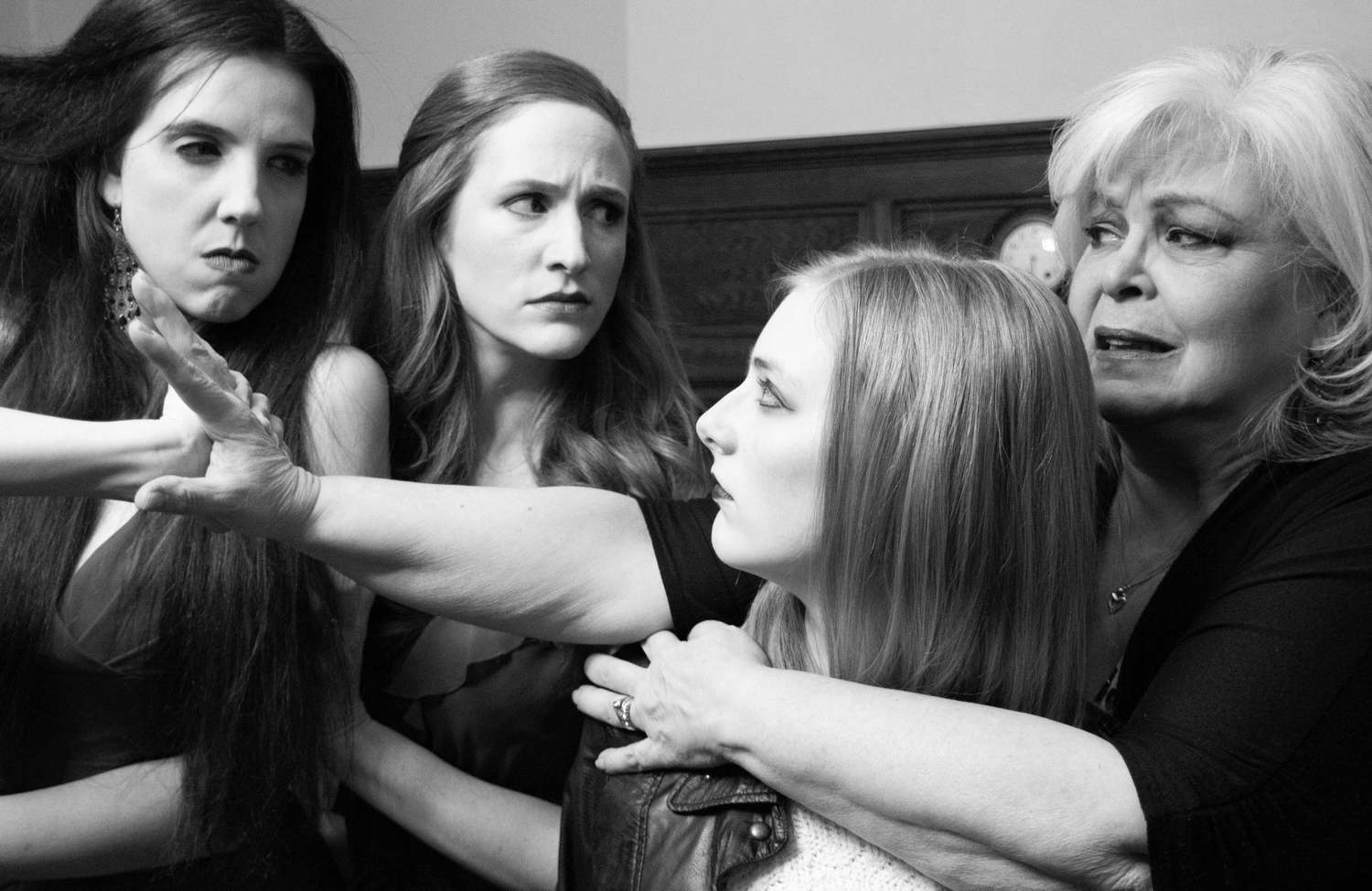Review: BOLD GIRLS at Brigit Saint Brigit Theatre Company Presents Powerful Women

With perfect timing (that is, coincident with International Women's Day), I was brought into the presence of four indomitable women in Brigit Saint Brigit's new offering, BOLD GIRLS. Directed by Cathy Kurz, this seemingly quiet piece written by Scotswoman Rona Munro is a look into the lives of four women who are affected by domestic abuse and the violence of Northern Ireland in 1990. Beneath the serene surface violence is an undercurrent that agitates and disturbs.
The play is divided into four scenes with intermittent soliloquies sharply caught in a harsh spotlight. The conversations among the women gradually reveal who they are and what their relationships are to each other while the soliloquies, short and terse, disclose their inner turmoil. There are lies being told.
As the women sit in Marie's home talking about normal everyday life..as normal as it can be in war torn Belfast...they fold and iron clothes, joke about red knickers with black cats, and discuss whether Jodi Foster was to blame for her attack in "The Accused." At times they talk over one another as women sometimes do. There are children living here as evidenced by toys strewn on the carpet. The women steal peeks out the window to check on burning buses and the Brits.
There's a knock at the back door. Marie (Melissa King), trusting to a fault, opens it to find a strange young woman with wild hair and wild eyes, soaking wet in her short white dress. She's the ghostly figure Marie has noticed before standing outside and staring at the house.
The young woman, Deirdre (Emma Johnson) enters. Once inside, she sets a firestorm in motion. She does the unthinkable. She takes what isn't hers. She inserts herself where she isn't welcome. But Deirdre is there to find just a "wee bit of hard truth."
The men in the lives of these women are absent. Some have been sent to the Kesh, the Belfast prison for the IRA. One has been killed. One is not home yet and may not be able to get around the roadblocks. Each of the women has cause to worry about a husband, a son, a father. When they were present, was there less cause to worry?
Marie tells herself that her husband Michael was a good man. A gentle man. A loyal husband. He even told her he loved her "when there was no drink in him." He was not like the husbands of her best friend, Cassie (Amanda L. Charles) or Cassie's mother Nora (Charleen J. B. Willoughby). They were abusive men. They were cheaters. It was hard being happy when they were home.
Cassie needs to be happy. She convinces her mother and Marie to join her at the club. She wants to dance and forget about the violence outside the walls. She intends to bury her worries in several gin and limes, which are brought by the waitress, the strange young woman who had shown up at Marie's back door. Deirdre has shed the short white dress and is wearing white jeans and top...and earrings...all of which belong to Marie. Someone is always taking something that belongs to Marie.
This is such a marvelous work! It is not built on action. The story comes from conversation. For four actors to successfully pull this off and keep the audience captivated is no small feat. These four women are consummate pros. When Willoughby is directing attention to something she sees on the box "telly," I find myself turning my head to look. When Johnson stands spotlighted and staring into my eyes with her soot smeared face and intensity, I am physically on edge. When King perseveres in her willingness to believe the best of everyone, I fight the urge to shake her. And when Charles eventually vocalizes her disillusion with her life, I feel her restlessness and desperation to leave it all behind.
Family dynamics are examined scrupulously as Nora and Cassie blame each other for the dysfunction in their family. Cassie remembers only good in her father and blames her mother for being the victim of his abuse. Their relationship is fraying with each drink that Cassie takes. There is a wee bit of hard truth coming out. There are sides being taken, lines have been drawn, and there is a quiet war within the walls.
Music throughout the play alternates between 90s British pop such as the Eurythmics "Sweet Dreams (Are Made of This)" and the Beatles "Blackbird," and lilting Irish melodies. It is a soothing contradiction to the sounds of helicopters flying overhead and violence in the streets. Peace and violence coexist.
This is a surprising production. It sneaks up on you, turning what was lighthearted and funny into something dark and serious. Then, just when you fear there are no good people, the ending gives you hope in humanity.
Photo of (left to right): Amanda Charles, Melissa King, Emma Johnson, Charleen Willoughby courtesy of Brigit Saint Brigit Theatre Company.
Videos
